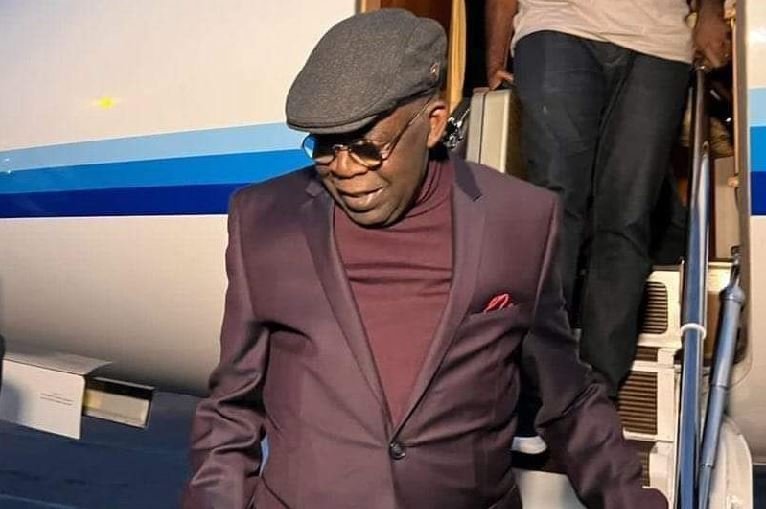US President Donald Trump is expected to sign an executive order removing diversity, equity, and inclusion (DEI) activities from the Defence Department on Monday, as part of a series of military-focused decrees.
A second order will direct US officials to develop a policy for transgender military.
A third executive order will rehabilitate military troops who were discharged for refusing the Covid-19 vaccine.
Removing DEI programs from the federal government was one of Trump’s key campaign promises, and he moved quickly to fulfil it after taking office last week.
DEI programs seek to increase job involvement among persons from diverse backgrounds.
Their supporters claim they address past under-representation and discrimination against specific groups, particularly racial minorities, but critics argue that such programs can be discriminatory in their own right.
The Trump administration contends that eliminating these measures from the US military will increase recruitment rates.
Defence authorities earlier stated that the military services together missed recruitment targets by 41,000 troops in fiscal year 2023.
US Defence Secretary Pete Hegseth has promised to remove similar programs in the military, telling reporters on Monday that “more executive orders are coming.”
A White House official confirmed to the BBC that the order prohibits any branch of the military, the Department of Defence, or the Department of Homeland Security from discriminating based on race or gender.
Furthermore, any lingering DEI-related bureaucracy will be removed from those departments.
It is unclear what specific programs will be affected by the order.
In a December 2020 report, the department’s Board on Diversity and Inclusion recommended a number of actions, including removing “aptitude test barriers that adversely impact diversity” and incorporating the “value of cultivating diversity and inclusion” into leadership and professionalism curricula.
Over the weekend, it was reported that the US Air Force was reviewing training materials on the role of Black and female pilots during WWII in an effort to comply with Trump’s DEI instructions.
However, military officials stressed on Sunday that certain curriculum will remain part of basic military training.
During the June campaign, Trump stated that the military’s goal is “to win wars, not to be woke.”
On Monday, Hegseth told reporters that the military’s role is “lethality, readiness, and war fighting.”
“Military training will be focused on the readiness of what our troops in the field need to deter our enemies,” according to him.
The move is part of a bigger, government-wide effort to eliminate DEI practices in the federal workforce.
Immediately after taking office, Trump directed that all US government employees working on DEI schemes be placed on immediate paid administrative leave.
The White House gave them till 17:00 EST (2200 GMT) the next day to go on leave before the offices and programs in question were closed.
Trump deemed the programs “dangerous, demeaning, and immoral” in an order.
On Monday, the Department of Veterans Affairs announced that it had placed over 60 employees on leave as it worked to fulfil Trump’s order last week to eliminate DEI from federal workplaces.
In a statement, the department stated that the personnel, who were completely engaged in DEI programs, were together paid around $8 million, or an average of $136,000 (£109,000) each year. One employee was earning more than $220,000 per year.
Trump is likely to sign a second executive order asking the military to develop plans for including transgender personnel and updating any existing guidelines on the subject.
A White House fact sheet refers to “trans-identifying” rather than “transgender.”
It is unclear how many transgender people serve in the United States military, while earlier estimates by scholars range from 9,000 to 15,000.
As part of the order, the use of pronouns will be prohibited throughout the defence department, and males will be specifically prohibited from utilising female-only facilities.
In 2021, then-President Joe Biden issued an executive order legalising transgender people to serve in the military and prohibiting discharges according to gender.
During the majority of Trump’s first administration, transgender people were barred from enrolling or serving unless they secured a waiver.
The Trump administration has stated that members who undergo transition surgery are frequently incapable of meeting the physical demands of their professions, possibly jeopardising military readiness. The White House did not provide evidence for this assertion, and the BBC has contacted the Pentagon for comment.
Sparta, an advocacy body for transgender military personnel, condemned the directive, claiming that transgender troops have served in combat zones and “demonstrated their ability” to perform in military formations.
“While some transgender troops do have surgery, the recovery time and cost are minimal and are scheduled so as not to impact deployments or mission readiness,” said Sue Fulton, an army veteran and senior advisor to Sparta.
“The readiness and physical capabilities of transgender service members is not different from that of other service members,” Fulton added.
In 2017, the Palm Centre, an independent research agency, calculated that removing around 10,000 transgender members from the military would cost $960 million.
The third order reinstates US military soldiers who were discharged for refusing to receive Covid-19 vaccines during the outbreak.
Those military personnel will be reinstated, receiving full back pay and benefits, as well as their prior rank.
Trump said that these service personnel were “unjustly expelled” during his inauguration speech.
Between 2021 and 2023, almost 8,000 US military troops were fired for refusing vaccinations, with only 43 being reinstated prior to Trump’s return to the White House.
A former high-ranking Pentagon officer, speaking on the condition of anonymity, told the BBC that their refusal to take vaccines was equivalent to undermining “good order” and discipline.
The official described the troops’ reinstatement as “concerning” and expressed concern that it could set a precedent for opting out of other vaccines, such as those given to military members for yellow fever or smallpox.











